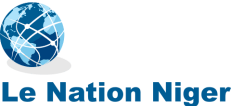The Network for Women’s Right in Ghana (NETRIGHT) has launched a Gender Mainstreaming Standards policy document aimed at ensuring gender-based issues are tackled well during crisis.
The document is necessitated by the difficulties women, children and some marginalised groups faced during the Covid-19 pandemic.
It will, therefore, serve as a policy guideline for governments to know the needs of these critical groups of people in society in times of pandemics or crisis and how best to respond to their needs. The launch took place at a stakeholder forum in Accra.
Madam Bernice Sam, a consultant, indicated that though the government put in place interventions in response to the pandemic in the areas of healthcare, education, social protection, formal and informal sector, the needs of women, children and some marginalised groups such as the disabled, were not catered for.
In the area of social protection, Madam Bernice said during the lockdown, women who got abused could not report it because no one was allow
ed to go out.
However, she indicated that the challenge could have been resolved if the government had a platform for reporting such cases.
On interventions in the informal sector, Madam Bernice applauded the government for the loans it gave out to small and medium scale businesses.
She, however, indicated that the amount of loans granted to men-owned business was more than that of women-owned businesses.
She blamed the situation on the fact that most women lacked information on the programme, thus could not benefit much from it.
She observed that communication during the pandemic was mostly online, and a lot of women were not familiar with those digital tools for communication and missed out on many opportunities.
Providing remedies to the challenges, Madam Bernice said during pandemics or any other crisis, there should be a budget specifically to tackle issues relating to gender.
She said special funds should be put aside to take care of women-owned businesses.
On communication, she said the governm
ent should ensure that there was digital literacy where women could use basic tools to communicate during crisis.
Aside the launch of the document, the forum was also used to deliberate on how to get 40 per cent of women to take up leadership roles in the financial sector.
Madam Patricia Blankson Akakpo, Head of Secretariat, NETRIGHT, noted that there were a lot of women in the financial sector -banking, insurance and investment, but only 10 per cent held leadership positions.
She, therefore, called on stakeholders in the gender mainstreaming circles to ensure that well-thought-out measures were put in place to get women to lead in the financial sector.
Source: Ghana News Agency
